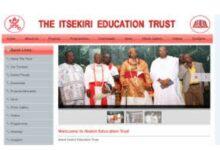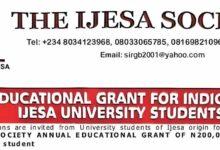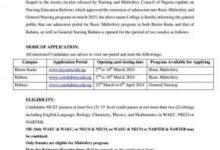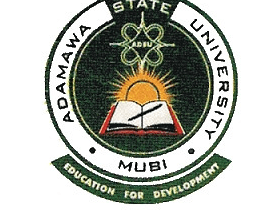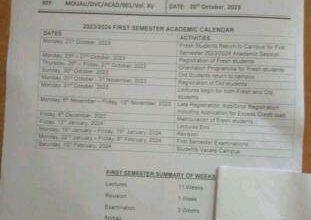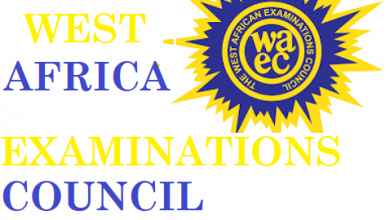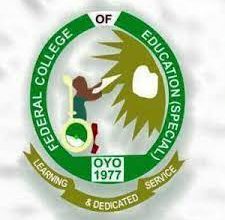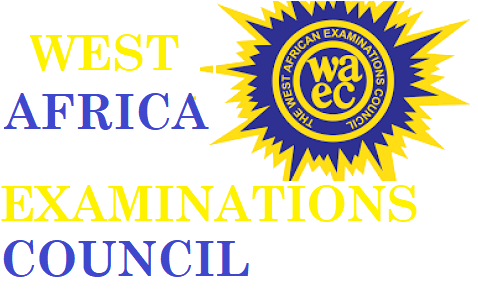
WAEC Syllabus for West African Traditional Religion
WAEC Syllabus for West African Traditional Religion. WAEC Syllabus for West African Traditional Religion is available for all candidates who want to participate in the examination. The West African examination council (WAEC) has officially introduced a syllabus that will guide all the WAEC candidates who wish to write the WAEC examination this year. For a very successful WAEC West African Traditional Religion examination for this year, you need to check out the available areas of concentration. It has been divided into sections with chapters, followed by the topics to be covered in preparation for the exams. In the WAEC Syllabus for West African Traditional Religion, you will also see the format of how the WAEC West African Traditional Religion questions will be presented.
There are 2 sections to answer questions from. Paper 1 is Objective and paper 2 contains essay questions. Where paper one (1) carries 50 minutes for 40 marks; paper two (2) carries 2 hours 10 minutes for 60 marks.
👉 Relocate to Canada Today!
Live, Study and Work in Canada. No Payment is Required! Hurry Now click here to Apply >> Immigrate to Canada
This WAEC syllabus is for both the O’level WAEC and General Certificate Examination (GCE) candidates. Final year students in the senior secondary school level and external candidates are eligible to make use of this syllabus and prepare ahead of the examination. WAEC Syllabus for West African Traditional Religion
See the full detailed information concerning the WAEC West African Traditional Religion Syllabus below.
[May not be taken with Christian Religious Studies and Islamic Studies
GENERAL AIMS
At the end of their study of the subject, the candidates are expected to have
- gained insight into and have appreciation of the traditional religious beliefs and practices and their impact on the lives of the people,
- worked out practical ways of confronting the challenges that face West Africans in utilizing acceptable traditional moral ideas and principles,
- understood how our traditional principles can be applied in their daily lives,
- analised the major traditional religious factors that influence the political, social and economic life of West African.
SCHEME OF EXAMINATION
There will be two papers, Papers 1 and 2 both of which will be a composite paper and will be taken at one sitting.
PAPER 1: Will consist of fifty multiple-choice objective questions all of which must be
answered within 50 minutes for 40 marks.
👉 Relocate to Canada Today!
Live, Study and Work in Canada. No Payment is Required! Hurry Now click here to Apply >> Immigrate to CanadaPAPER 2: Will consist of three sections, Sections A, B and C, each consisting of three essay-type questions. The sections shall cover the following areas of the syllabus
- Section A: General Introduction to West African Traditional Religion
- Section B: The Individual and the Community
- Section C: Contemporary Society
Candidates will be required to answer four questions in all, choosing at least
one question from each section, for a total of 60 marks. The paper will take 2
hours 10 minutes.
DETAILED SYLLABUS
SECTION A: GENERAL INTRODUCTION TO WEST AFRICAN TRADITIONAL RELIGION.
- Introduction to the Study of West African Traditional Religion Nature
(a) Characteristics of W.A.T.R
(i) Belief in the Supreme Being
(ii) Divinities, Ancestors, Mystical Powers etc
(b) Purpose/Reasons for the study of W.A.T.R
- Terms Used to Describe West African Traditional Religion
(a) Fetishism and Paganism
(b) Animism and Ancestral Worship
(c) Polytheism and Monotheism
(d) Totemism
(e) Primitive
- Sources of West African Traditional Religion
(a) Non-Oral Sources
- Traditional Arts/Crafts
(b) Oral Sources
(i) Names and Attributes of God
(ii) Theophorous Names
(iii) Proverbs/Wise sayings
(iv) Songs/Dirges
(v) Myths / Legends and Drum Language
- Approaches to the Study of West African Traditional Religion
(a) Thematic Approach
(b) Comparative Approach
(c) Historical Approach
(d) Enumerative Approach
- The Structure of West African Traditional Religion
(a) God in West African Belief
(b) The Ancestors
(c) The Divinities
(d) Charms and Amulets
- Worship in West African Traditional Religion
(a) Worship in W.A.T.R – Introduction
(b) Main features:
(i) Prayer/Libation
(ii) Sacrifice
(iii) Spirit possession
SECTION B: THE INDIVIDUAL AND THE COMMUNITY
7. Religious Personalities in West African Traditional Religion.
(a) The concept/types of religious personalities
(b) Processes for selecting religious personalities
(c) The functions of religious leaders.
8. Festivals in West African Traditional Religion.
(a) Types of Festivals
(b) The significance of Festivals
9. Religion and Medicine in W.A.T.R.
- Religion and Medicine: Introduction
- Herbal Medicine
(c) Traditional and Orthodox Healing
- Concept of Time, Work and Wealth
(a) Concept of Time
(i) Definition of time in West Africa.
(ii) Concept of the Future
(iii) The Importance of Time
(c) The Concept of Wealth
(i) Meaning/Attitude towards Wealth
(ii) Ways of acquiring Wealth
(iii) Consequences of acquiring Wealth
- Concept of Man and Destiny
(a) Concept of Man
(b) Concept of Destiny
- Enemies of Life in West African Traditional Religion
(a) Witchcraft and magic
(i) Meaning of witchcraft and magic
(ii) Acquisition of Witchcraft
(iii) Role of Witchcraft and Magic
(b) Malevolent Spirits
- Religion and Ethics in West African Traditional Religion.
(a) The main Features of Ethics
(b) Sources of Ethics in WATR
(c) Moral Values/Virtues in West African Traditional Religion
(d) Taboos and Sin in WATR
(e) Convenant in WATR
- 14. Rites of Passage
(a) Rites of passage
(i) Description of the stages; Rites of passage:
Birth, Naming, Puberty, Marriage and Death,
(ii) Importance of Rites of Passage
SECTION C: CONTEMPORARY SOCIETY
- Traditional Political Institutions in West African Traditional Religion.
(a) Chieftaincy
(i) Structure of chieftaincy institutions
(ii) Process involving in selecting Chiefs
(iii) Importance of chieftaincy institution
(b) Asafo Companies
(i) Introduction/Background
(ii) Importance
- Religion and Tourism in West African Traditional Religion.
(a) Introduction
(b) Religion and tourism
(c) The uses of free/leisure time
(d) Sacred personalities and tourism
(e) Sacred places and tourism
(f) Sacred objects and tourism
- 17. Religion and Stress Management in West African Traditional Religion.
(a) Meaning and types of stress situation in West Africa traditional society
(b) Causes and effects of stress situations
(c) Management of stress situations
- The Role of W.A.T.R. in Conflict Resolution and Management
(a) Introduction – meaning/concept of conflict in West African traditional society.
(b) Causes of conflicts
(c) Effects of conflicts
(d) Conflict resolution and management in West African society
- Religion and Reproductive Health in West African Traditional Religion.
(a) West African Traditional Religion and Reproductive Health Features: issues of Hygiene, sexuality and Promiscuity/Abortion
(b) Circumcision Rites and Reproductive Health
- W.A.T.R. and Modernity
(a) The impact of foreign religions on (Christianity and Islam) WATR
(b) The impact of West African Traditional Religion on Christianity and Islam.
(c) The impact of Science and Technology on West African Traditional Religion.
(d) West African Traditional Religion and Conservation of the Environment.
(e) The Impact of Urbanization on West African Traditional Religion.
- New Religious Movements (NRM) in West African Traditional Religion.
(a) Afrikania Missions (Ghana)
(b) Godianism (Nigeria)
(c) The future of West African Traditional Religion.
Check and Confirm: How much is Dollar to Naira Pounds to Naira Rate Today
